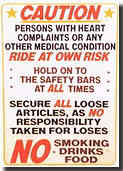Wednesday, February 18, 2009
Radio Activity
Skipped an early evening walk to library. Drizzly, not bad out, but radar inconclusive, & a little more water & wind would have made the trip nasty.
Read an annoying crime novel, Radio Activity (2004) by Bill Fitzhugh. Bill's 6th, I might try another if it's not about radio. Fitzhugh used to be a commercial classic rock DJ, & he's pictured on the dust jacket with LPs by Derek & the Dominos, Steely Dan, & Dylan, seated by a small mixing board, looking every bit like a smug ex-classic rock DJ about to serve up a steaming mound of Gram Parsons trivia. The protagonist of his novel is also an aging classic rock DJ landing in a small Mississippi market at station run by the sleaziest station manager imaginable, which means the manager is entirely believable. Fitzhugh uses this DJ character, Rick Shannon, to tell us page after page after page how great a classic rock DJ the author was. Oh yeah, he goes deep catalogue with Wishbone Ash, can program a rainy day set without "Riders In the Storm" by the Doors, & is a genius for stringing together a set of songs linked by Todd Rundgren before ending the set with a song actually by Rundgren - of course the obscure original of "Hello It's Me" by The Nazz rather than the peppier solo hit remake. He also instructs the radio audience in the importance of Al Kooper to the career of Lynyrd Skynyrd, but not without mentioning Kooper's participation in "Short Shorts" by the The Royal Teens. Rick Shannon, as program director, pushes around, critiques, & tries to play mentor to an assortment of underpaid DJs; he'll learn 'em how to do real classic rock free form & never again air "Stairway to Heaven." At the first staff meeting, Shannon actually keys the Zep album to make it unplayable. This book is copyrighted 2004 & yet nobody at the fictitious station knows of the Great Equalizer, allmusic.com.
 Classic rock free form DJing was not a high art; if one had the knack, it could be learned & mastered. Great free form talent in classic rock was usually wasted on the kind of audience it drew, & the more subtle the DJ, the more pointless the effort, except as a personal pleasure. An idiot savant might be impressed. For a DJ, the only necessary speaking skill was in paraphrasing liner notes & written announcements. Adding in monologue was something else.
Classic rock free form DJing was not a high art; if one had the knack, it could be learned & mastered. Great free form talent in classic rock was usually wasted on the kind of audience it drew, & the more subtle the DJ, the more pointless the effort, except as a personal pleasure. An idiot savant might be impressed. For a DJ, the only necessary speaking skill was in paraphrasing liner notes & written announcements. Adding in monologue was something else.
Shannon/Fitzhugh is the kind of old, old school DJ I thought had been using too much of WFMU's air signal for a decade, when I arrived there in 1981; guys who were still trying to provide a classic rock alternative to New York City commercial classic rock, mixing in a bit of jazz, blues, & spoken word, maybe dipping into The Stooges, MC5, The Ramones. My attitude was, If we're really free to anything we want, & we're not being paid, or selling anything, why should we do this? Fitzhugh has his DJ creating sets to impress middle-aged rednecks. He's obsessed with when the classic rock era begins & ends, & his characters discuss this in all seriousness; As program director, Shannon frowns upon anything beyond the end date unless it can be justified. They sort of agree the end is The Last Waltz by The Band. The first time I hung out with WFMU DJs was to watch a cable broadcast of "The Last Waltz," & my lasting impression of the event is that they were nice guys but way too excited about the movie, & needed to cut their hair, loosen their grip on the Sixties, & drink better beer. Maybe they thought the only choice was between classic rock & punk or disco. The choice was between their small sandbox & a big sandbox. Most of them were gone when I joined the station.
I enjoyed Fitzhugh's writing enough outside the classic rock bullshit to keep turning the pages. Shannon becomes convinced his predecessor at the station, a DJ named Captain Jack, was murdered. I wasn't convinced that this suspicion would motivate Shannon into turning P.I. & risking his livelihood & life in semi-rural Mississippi, even though he hates the station manager. Shannon initially seems driven more by curiosity than anything else. But Shannon correctly assumes Capt. Jack wouldn't just walk away from his valuable record collection & disappear. Then he finds a tape Jack may have been using to blackmail several prominent local citizens, including the station manager. Fitzhugh does well by an important female character, Traci, introduced like a caricature, provincial receptionist but then smoothly developed into an intelligent, trustworthy human being. All the women in the novel are nicely thought out. Fitzhugh likes women.
This isn't much of a review. But the trip through classic rock constantly distracted me from the good stuff. Readers my age must be the target audience for Radio Activity; who else would care? Even the most nostalgic of oldies lovers think the Museum of Classic Rock is larger than Fitzhugh makes it, & the implication that it's the golden age of rock is by itself a bit sickening. Free form commercial FM radio was a short-lived phenomenon. The ideal that free form gives average, casual, station-surfing listeners more of what they want, & what they want is for DJs to educate them, is untrue. Radio DJing, like writing poems, is something most people believe they can do & need not prove. When you play lots of unfamiliar music, you gain dedicated listeners but also convince greater numbers that they can do it better than you can. Rick Shannon might do very well in a weekly slot, profitably selling AARP memberships & male enhancement vitamins.
"If a nation expects to be ignorant and free, in a state of civilization, it expects what never was and never will be." Thomas Jefferson
Read an annoying crime novel, Radio Activity (2004) by Bill Fitzhugh. Bill's 6th, I might try another if it's not about radio. Fitzhugh used to be a commercial classic rock DJ, & he's pictured on the dust jacket with LPs by Derek & the Dominos, Steely Dan, & Dylan, seated by a small mixing board, looking every bit like a smug ex-classic rock DJ about to serve up a steaming mound of Gram Parsons trivia. The protagonist of his novel is also an aging classic rock DJ landing in a small Mississippi market at station run by the sleaziest station manager imaginable, which means the manager is entirely believable. Fitzhugh uses this DJ character, Rick Shannon, to tell us page after page after page how great a classic rock DJ the author was. Oh yeah, he goes deep catalogue with Wishbone Ash, can program a rainy day set without "Riders In the Storm" by the Doors, & is a genius for stringing together a set of songs linked by Todd Rundgren before ending the set with a song actually by Rundgren - of course the obscure original of "Hello It's Me" by The Nazz rather than the peppier solo hit remake. He also instructs the radio audience in the importance of Al Kooper to the career of Lynyrd Skynyrd, but not without mentioning Kooper's participation in "Short Shorts" by the The Royal Teens. Rick Shannon, as program director, pushes around, critiques, & tries to play mentor to an assortment of underpaid DJs; he'll learn 'em how to do real classic rock free form & never again air "Stairway to Heaven." At the first staff meeting, Shannon actually keys the Zep album to make it unplayable. This book is copyrighted 2004 & yet nobody at the fictitious station knows of the Great Equalizer, allmusic.com.
 Classic rock free form DJing was not a high art; if one had the knack, it could be learned & mastered. Great free form talent in classic rock was usually wasted on the kind of audience it drew, & the more subtle the DJ, the more pointless the effort, except as a personal pleasure. An idiot savant might be impressed. For a DJ, the only necessary speaking skill was in paraphrasing liner notes & written announcements. Adding in monologue was something else.
Classic rock free form DJing was not a high art; if one had the knack, it could be learned & mastered. Great free form talent in classic rock was usually wasted on the kind of audience it drew, & the more subtle the DJ, the more pointless the effort, except as a personal pleasure. An idiot savant might be impressed. For a DJ, the only necessary speaking skill was in paraphrasing liner notes & written announcements. Adding in monologue was something else.Shannon/Fitzhugh is the kind of old, old school DJ I thought had been using too much of WFMU's air signal for a decade, when I arrived there in 1981; guys who were still trying to provide a classic rock alternative to New York City commercial classic rock, mixing in a bit of jazz, blues, & spoken word, maybe dipping into The Stooges, MC5, The Ramones. My attitude was, If we're really free to anything we want, & we're not being paid, or selling anything, why should we do this? Fitzhugh has his DJ creating sets to impress middle-aged rednecks. He's obsessed with when the classic rock era begins & ends, & his characters discuss this in all seriousness; As program director, Shannon frowns upon anything beyond the end date unless it can be justified. They sort of agree the end is The Last Waltz by The Band. The first time I hung out with WFMU DJs was to watch a cable broadcast of "The Last Waltz," & my lasting impression of the event is that they were nice guys but way too excited about the movie, & needed to cut their hair, loosen their grip on the Sixties, & drink better beer. Maybe they thought the only choice was between classic rock & punk or disco. The choice was between their small sandbox & a big sandbox. Most of them were gone when I joined the station.
I enjoyed Fitzhugh's writing enough outside the classic rock bullshit to keep turning the pages. Shannon becomes convinced his predecessor at the station, a DJ named Captain Jack, was murdered. I wasn't convinced that this suspicion would motivate Shannon into turning P.I. & risking his livelihood & life in semi-rural Mississippi, even though he hates the station manager. Shannon initially seems driven more by curiosity than anything else. But Shannon correctly assumes Capt. Jack wouldn't just walk away from his valuable record collection & disappear. Then he finds a tape Jack may have been using to blackmail several prominent local citizens, including the station manager. Fitzhugh does well by an important female character, Traci, introduced like a caricature, provincial receptionist but then smoothly developed into an intelligent, trustworthy human being. All the women in the novel are nicely thought out. Fitzhugh likes women.
This isn't much of a review. But the trip through classic rock constantly distracted me from the good stuff. Readers my age must be the target audience for Radio Activity; who else would care? Even the most nostalgic of oldies lovers think the Museum of Classic Rock is larger than Fitzhugh makes it, & the implication that it's the golden age of rock is by itself a bit sickening. Free form commercial FM radio was a short-lived phenomenon. The ideal that free form gives average, casual, station-surfing listeners more of what they want, & what they want is for DJs to educate them, is untrue. Radio DJing, like writing poems, is something most people believe they can do & need not prove. When you play lots of unfamiliar music, you gain dedicated listeners but also convince greater numbers that they can do it better than you can. Rick Shannon might do very well in a weekly slot, profitably selling AARP memberships & male enhancement vitamins.
Labels: music, WFMU, what I'm reading














